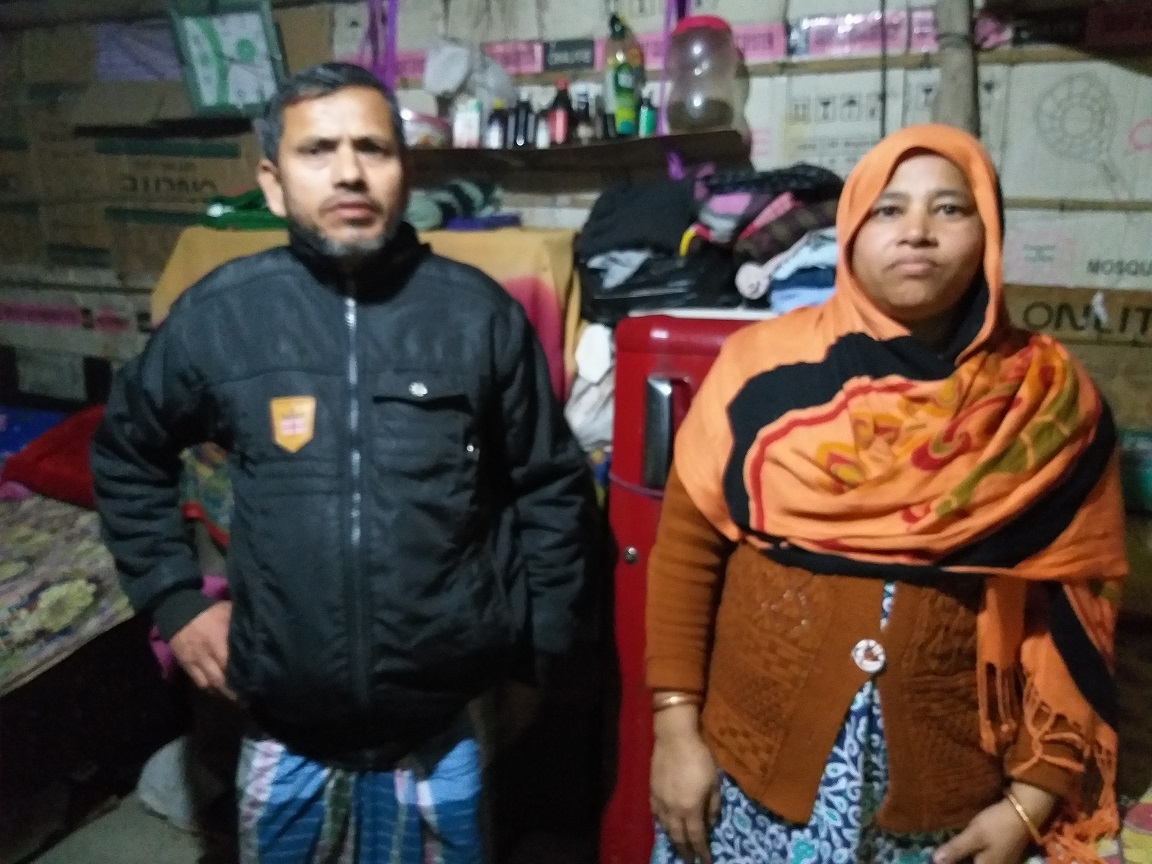
No land’s men: Muslim migrants from Assam, WB, live in fear, stigma
In this age of mobile phone and internet, it did not take much time for the news to reach New Delhi’s Okhla Vihar in Jamia Nagar that in far-off Bengaluru many Bengali-speaking Muslims were evicted on suspicion of being illegal Bangladeshi migrants.

In this age of mobile phone and internet, it did not take much time for the news to reach New Delhi’s Okhla Vihar in Jamia Nagar that in far-off Bengaluru many Bengali-speaking Muslims were evicted on suspicion of being illegal Bangladeshi migrants.
Many of those who were uprooted from the Bengaluru slum despite possessing Aadhaar cards and other relevant identity documents had their roots in Assam and West Bengal.
This piece of information is playing in the minds of Farida Bibi and other residents clustered in rows of makeshift shanties made of cheap plywood and tins at the end of an alley (by-lane No 9) in this crowded locality.
Apart from her ramshackle existence, Farida Bibi also relates to the victims, for they share a common root.
Around twenty years ago, as a young woman, she had moved to Delhi with her husband, a mason, to etch out a better future after a devastating flood washed away their home in Dhubri district of Assam, bordering Bangladesh.
It is here in this city that she gave birth to her five children, and found a new home — a 15X10 feet room, which serves as both kitchen and bedroom to her seven-member family. The family pays a rent of ₹1,200 for this makeshift hut. There is, however, no rent agreement or any other paperwork as the slum is built on an encroached government land.
But a series of developments that took place lately – including the scare created by the Citizenship Amendment Act (CAA) and prospect of a nationwide Assam-like National Register of Citizens (NRC), and now the news from Benglauru — have sent her into a tizzy. “Till now, we have not faced any problem in this city. My children feel more at home here than in Assam,” Farida said. Her daughter, Sofia, nods in approval.
“I am now not very sure about the future. Maybe, we have to go back to our village,” Farida said.
She said they felt so much at home here that it did not occur to the family to go to Assam to include their names in the NRC, which was updated last year to discern illegal migrants from ‘genuine’ Indian citizens.
“We thought since we have all the necessary documents such as voter and Aadhaar cards, our children’s birth certificates, it is not worthwhile to spend so much money in shunting between Delhi and Dhubri with entire family to get our names enlisted,” Farida said. On hindsight, maybe, it was a mistake, she laments.
Mofiqul Islam, another resident of the slum who has migrated from Assam’s Kokrajhar district, feels even the inclusion of names in the NRC was not enough proof against a prejudice.
“I had to rush to Assam several times to appear for NRC hearings, submitting documents etc. At last, when my name figured on the list, I was happy thinking that I would not be called a Bangladeshi anymore,” said Mofiqul.
“Now that the Assam government has decided to junk the entire exercise, the tag of a suspected illegal Bangladeshi migrant is back to haunt me,” he said exasperatedly.
It was this ‘frustration’ which prompted Bengali-speaking Muslims of Assam to welcome the NRC, hoping that it will at least end the decades of stigmatization for the entire community, said Hasina Ahmed, a law student of Jamia, who hails from Assam’s Nalbari district.
Hasina’s NGO Humanity Concern works among these slum-dwellers, providing education to children, creating awareness among residents about health and other issues.
The slum has around 275-300 shanties, mostly inhabited by Bengali Muslims from Assam and West Bengal.
Ahmed said most of them were settled here for years and were voters in Okhla constituency.
The common fear of the residents here is that if BJP comes to power they might too meet the same fate as that of their ilk in Bengaluru.
“We are poor people. We want to live and earn peacefully. We don’t understand this politics. But we are scared about our future seeing and hearing what is happening around us,” said Anwara Bibi, who hails from Dinhata in Cooch Behar district of West Bengal.
Anwara works as a domestic help to supplement her husband’s meager monthly income of ₹12,000. He does menial jobs. But more than the economic condition of her family, she says, it’s her existence that concerns her now.
This concern drags Anwara to Shaheen Bagh, whenever she gets time, to express solidarity with many women like her, who are protesting there against the CAA.
On Saturday (February 8) when the residents of this slum stand in the queue to cast their vote to elect a new government for Delhi it’s Bengaluru that would weigh heavily in their mind.


